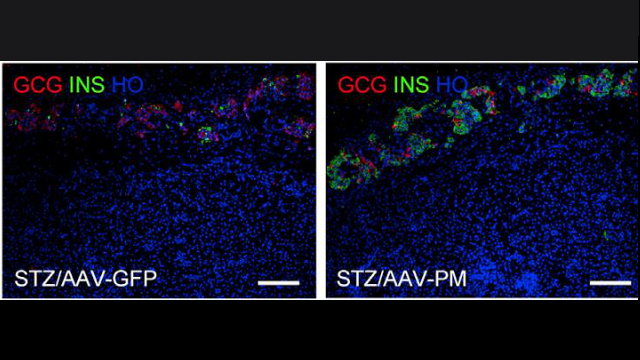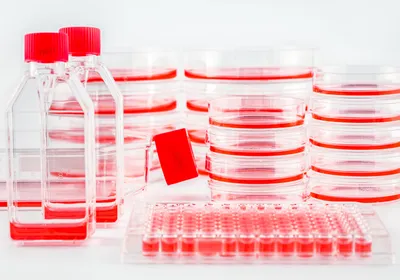 Human islets were treated with a drug to kill the insulin-making cells, then treated with either an empty virus (left) or a therapeutic virus (right) and grown in a diabetic mouse. The green staining shows insulin-making cells.GEORGE GITTES AND XIANGWEI XIAOResearchers have successfully treated animals with a mouse version of type 1 diabetes by inducing pancreatic cells that don’t normally produce insulin to manufacture the protein, according to a study published today (January 4) in Cell Stem Cell.
Human islets were treated with a drug to kill the insulin-making cells, then treated with either an empty virus (left) or a therapeutic virus (right) and grown in a diabetic mouse. The green staining shows insulin-making cells.GEORGE GITTES AND XIANGWEI XIAOResearchers have successfully treated animals with a mouse version of type 1 diabetes by inducing pancreatic cells that don’t normally produce insulin to manufacture the protein, according to a study published today (January 4) in Cell Stem Cell.
The research team, based at the University of Pittsburgh School of Medicine, didn’t expect the experiment to work—since type 1 diabetes arises when the immune system turns on cells that naturally produce insulin, they expected that inflammation would quickly wipe out the engineered cells as well. But instead, the mice thrived for four months before an immune reaction destroyed the cells.
“Type 1 diabetes is an autoimmune disease where the body is reacting to the insulin-producing cells and killing them off and we don’t really know why,” study coauthor George Gittes, a physician scientist at the Children’s Hospital of Pittsburgh, tells Gizmodo. “If you gave patients new insulin cells with a transplant, it will kill them off. If we use gene therapy to get the ...






















